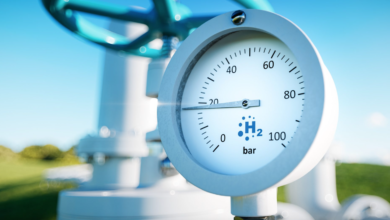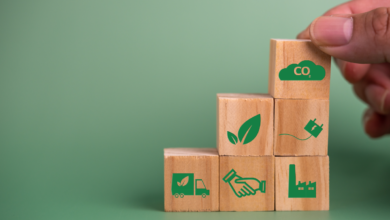The companies most committed to sustainability achieve better performance in the water, waste and energy sectors
(Sustainabilityenvironment.com) – According to the data released by the Sustainability Report “Italian Utilities for the 2021 ecological transition and digital transition”, prepared by the Utilitatis Foundation, the economic value generated and distributed to stakeholders by Italian utilities in 2020 was 11 billion euros. Up from last year.
The report prepared by the Utilitatis Foundation on behalf of Utilitalia, the Federation of Water, Environment and Energy Companies, focuses the spotlight on the ecological transition connected to utilities.
The associates that have answered the survey – and that represent 78% of the total revenues and 83% of the attached ones of the field – interest 37 million Italians for the water service, 24 million for the environmental services, 12 million for gas distribution and over 6 million for electricity distribution. The pandemic also failed to stop investments: 4.5 billion euros (over 14% of revenues), of which over 600 million in decarbonization, almost 300 million euros in digitization and more than 180 million in the circular economy.
The economic value generated and distributed to the stakeholders from the sector – we observe in the report – is 11 billion euros. A value that takes into account what is distributed to workers, shareholders, public administration, financiers, local communities and reinvested in the company.
And to which they must be added ulterior 9 billion of expense toward the suppliers, of which almost 5 billion towards local suppliers. As for digitization, investments amounted to 287 million (compared to 342 million in 2019). Today 32% of water networks are district, while smart gas meters are about 68% of meters installed.
The target for decarbonisation
The decarbonization target is fundamental for the associated companies and for the ecological transition: investments amounted to 603 million (450 in 2019). And there are numerous concrete examples: from energy produced from renewable sources (46%) the more than 6 thousand vehicles with low environmental impact (22% of the total, increasing compared to 2019), mainly used for waste collection. Investments in the circular economy, albeit declining, amounted to 182 million, with a recycling rate that reaches 91% (an improvement compared to 78% in 2019) indicating a greater recovery of material started for recycling and a recovery rate of sludge that exceeds 87% (this value also improved compared to 69% in 2019).
The integration of sustainability into business is growing: 56% of associated companies – even in the absence of regulatory obligations – publish a sustainability report, 16% provided a structure dedicated to sustainability and 41% included explicit sustainability objectives within the Business Plan. In the specific field of health and safety at work, it is noted that 70% of companies monitor the near miss (the absence of accidents), while in the front of gender equality there is a percentage of women on boards of directors of 35%.
“The results – observes the president of Utilitalia, Michaela Castelli – confirm how the investments for the decarbonization, the circularity and digitalization, together with the ability to generate value in the territories, represent, also in a pandemic year, the cornerstones that guide the action of utilities. Our companies play a central role in the recovery of the country and in the ecological transition, generating value for shareholders, innovating the services rendered to citizens, businesses and local authorities, while ensuring the quality and continuity”.
Focus on sustainability, waste, water energy
Among the companies surveyed a focus was dedicated to the 15 that have shown greater attention to sustainability. The report defines them as “Utilitalia 15″ and they count approximately 25 billion euros of revenues.
The second part of the report is therefore dedicated to the evaluation of the performance in the water, waste and energy sectors of the “Utilitalia 15” companies, with respect to different benchmarks. Speaking of water, the net losses in Italy are 40%, since it drops to 35% in the case of the “Utilitalia 15”.
While the share of sewage sludge disposed of in landfills, from 13% of the national average figure to 10% for the best 15 companies.
With regard to waste, the separate collection of the companies most committed to sustainability reaches 68% (against an Italian average of 63%), while landfill falls to 6% (Italian average 20%).
On the energy front, for the ecological transition, the investments per inhabitant of the “Utilitalia 15” have passed between 2019 and 2020 from 74 to 91 euros per inhabitant, while the gas smart meters in operation have increased from 70% to 73%.
Objective ecological transition to improve business performance through sustainability
For Castelli “these data show that investments in sustainability are not only fundamental in the path towards the ecological transition but now also ensure better business performance for the benefit of the communities served. The company today, to be competitive, must necessarily be innovative and sustainable. And the utility sector has now taken this path with determination“.
For Stefano Pareglio, president of the Utilitatis Foundation, “the report is a further testimony of the importance of utilities for the progress of the country and for the daily life of citizens and businesses. The task of the renewed Utilitatis is to contribute to the development of this evidence, through surveys, studies and research for the various partners”.
With this edition, the Sustainability Report of the companies associated with Utilitalia has been renewed thanks to the work carried out by a special Task Force (Accountability), participated by 20 members, and established as part of the Utilitalia Plan for the Ecological Transition.






